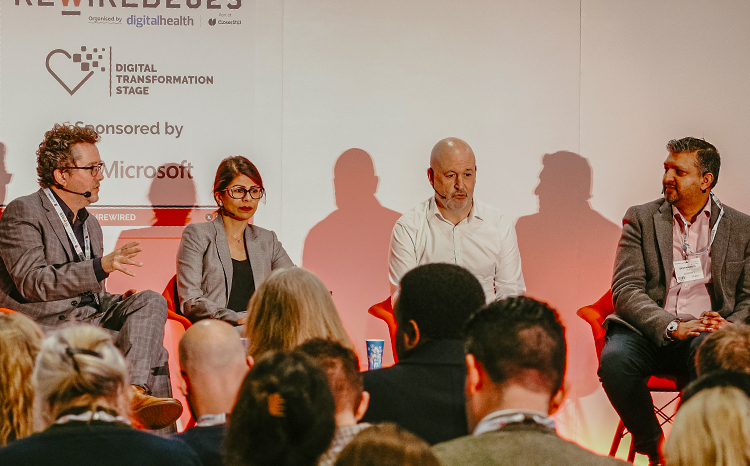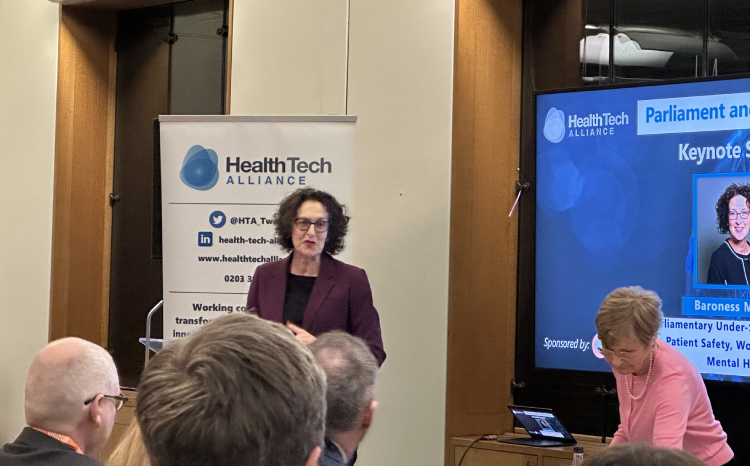Should we admit our mistakes and start again?
- 10 April 2024

At last month’s giant HIMSS in Orlando, you could ‘smell the money’. But it might be time to stop getting excited about the future of health tech and face up to some hard truths, writes Joe McDonald
While you were all at Rewired in Birmingham talking about Frank Hester, I took the road to HIMSS24 in Orlando, Florida. My last trip was cancelled in March 2020 when Covid struck. Seventy-two thousand delegates missed the opportunity to see President Donald Trump give the opening keynote speech.
I had been to HIMSS twice previously, once in Las Vegas and once in Orlando. These venues were chosen because they are the only ones that could provide enough hotel rooms to house so many delegates and with halls big enough to hold the vast number of exhibitors. I remember going to an induction meeting with 3,000 other first timers in Vegas and being told by the lady doing the talk that the emergency phone number we’d been given was only to be used in genuine emergencies and not “when you find yourself in a bedroom with a beautiful lady and she wants 200 dollars. Remember, Honey you ain’t any cuter in Vegas than you are at home. Pay the lady or best still, don’t talk to the beautiful lady.”
As a member of a very large delegation of NHS people one of the key topics of conversation during the day was who to have dinner with in the evening; large corporations with big hospitality budgets would compete with each other for our attention. The NHS was ‘in play’ thanks to the billions placed on the table during the National Programme for IT. I don’t think I bought a drink or a meal on my first trip, somebody picked up the tab for everything in a way which was standard practice in the pharmaceutical industry in the 1980s until a new code of practice was brought in after a series of prescribing scandals.
Orange County Convention Centre in Orlando sits among the great theme parks, along with Disneyland and SeaWorld. It is vast. It takes a couple of days just to work out the geography of it, though this year there was a much-improved HIMSS event app which helped navigate the event.
Only 42,000 delegates
HIMSS is still recovering from Covid with ‘only’ 42,000 delegates at last month’s event. At 1,500 dollars a head that’s still a 63-million-dollar show, leaving aside what the exhibitors have paid. There were 9,000 exhibitors, ranging from the vast deep piled carpeted stands of companies like EPIC and Microsoft, where you could get anything from a coffee to a massage, to smaller companies with modest inducements to make you stop and give them a chance to peddle their heath tech. You can smell the money. The fact of the matter is that there is almost no limit on the IT spend of American healthcare providers and consequently 9000 exhibitors feel they can get value from buying a stand at the show. This isn’t the case in the UK and our marketplace has shrunk with every government intervention which has favoured a diminishing number of proprietary solutions.
Most people I spoke to felt that HIMSS isn’t yet back to the dizzying spectacle that it was pre-Covid. The British delegation were able to gather in a single booth in Miller’s Ale House on International Drive. There was a distinct lack of mega corporations offering dinner invitations but then I guess the NHS is no longer ‘in play’ and we have settled on our duopolies and monopolies. These were forged the old-fashioned way over 400 dollar steaks and fine wines.
Joining me in my booth at Millers Ale House was Rachel Dunscombe, attending as CEO of openEHR where we to found ourselves talking about Frank Hester and how much patient data now sits in the hands of one individual; and also how much of it is frankly garbage. We agreed, like the old joke about asking for directions, you wouldn’t start from here.
Scale of failure
Standing atop the magnificent two storey Microsoft stand in the vast exhibition hall I could see two letters again and again down the length of the hall (think the closing scene of Raiders of the Lost Ark): A and I. Everyone is peddling AI this year. Is it the answer? Can AI make sense of 30 years of ‘garbage in’? Or is the only sensible way forward to admit our mistakes, rethink how we procure NHS IT, and start again with something like openEHR? At the very least, do we need a code of conduct?
Before Covid I persuaded Matthew Gould, when he was the head of NHSX, that he should go to HIMSS so that he could smell the money with me and understand just how broken our health IT market is and how exposed the NHS is to a handful of wealthy individuals who now hold most of the NHS’s very personal and identifiable data.
The vastness of HIMSS, though impressive and still an essential trip for clinical informaticians to understand the history of our IT landscape, is also something of a monument to the scale of our failure to solve interoperability. Not so much a cathedral to health tech as a Tower of Babel. Instead of reaching for the skies we might do well to look at where we are and exercise a little humility.







1 Comments
Joe, as ever, you cut through to the underlying issue – no-one would choose to start from here. We already have a Code of Conduct, sadly that was subverted by the billions of pounds slushing around in past years and central attempts (possibly subconsciously) to replicate Primary Care’s de facto duopoly in the Acute sector.
Ideally there would be a hiatus in major systems procurement until we have a political consensus on the future shape of the NHS and on a ten year plan to get public health off its knees with apolitical fully funded workforce and resource strategies in place.
Technology will be important in helping transform Heath and Social Care into a resilient and sustainable future state but that transformation should shape the requirements new technology will need to deliver, rather than the limitations of emerging technology shaping reformed Health and Social Care services.
This may seem like naive thinking but talking in private to MPs of all parties from all the UK’s nations in Westminster a few weeks ago revealed an underlying consensus that these services deserve better than the Punch and Judy politics of the past 25 years and that the time is ripe for fundamental changes.
One can only hope that this once in a lifetime opportunity isn’t squandered for short term political expediency.
Comments are closed.